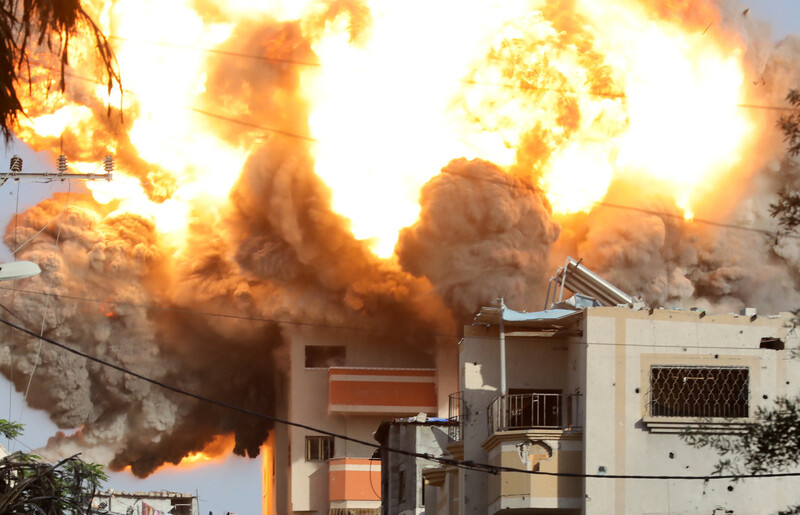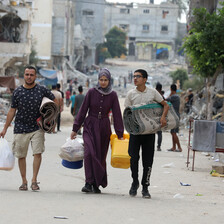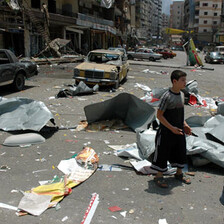The Electronic Intifada 5 July 2024

A fire rages in a house in Bureij in the central Gaza Strip after an Israeli missile attack on 3 June 2024.
APA imagesAt 4:37 am on 28 October 2023, my mother’s phone rang, piercing through the tense silence that enveloped our home in the Sheikh Ijleen neighborhood of Gaza City.
I remember the time vividly, because the ringing woke me and I checked my own phone. Amidst the chaos and ongoing blockade, hearing the phone ring was a surprise: connectivity was a luxury we didn’t expect.
It was my mother’s cousin, calling from the relative safety of the southern part of Gaza, frantically checking to see if we were okay.
We were in the north, where our neighborhood had been transformed into a military camp for Israeli soldiers.
It was nearly nine months ago now.
I recorded a memory in my diary that remains seared into my mind: a red light glowed ominously through the window, shards of glass rained down on me, cutting my face before I even registered the pain, and a choking cloud of dust that obscured my vision and made it hard to breathe.
It happened minutes after that phone call.
I remember my mother’s voice calling out to me: “Roaa, Roaa, you are next to the broken windows.” She was trying to calm my brothers. I screamed to warn my family to be careful of the glass.
I remember the frantic voices of my uncle and grandmother asking whether the rocket had struck our floor.
In those initial moments, the shock numbed us to the sound of the explosion. All we knew was that we had been hit or perhaps someone very close to us had.
I still do not know how I managed to walk on the floor full of broken glass, feeling the rubble and broken stone beneath me.
I don’t know how I found my emergency bag – the one all Palestinians in Gaza pack, containing essential documents and extra clothes. Mine includes my school and birth certificates, my laptop, an extra phone charger, my identity card, a shirt and trousers.
I don’t know how I made my way down to the first floor, unable to see clearly.
Still, I saw enough. I saw my cousins covered in dust from the bombing. I saw the hand of my 14-year-old cousin under the rubble; her arm was the only thing visible. Her mother screamed, urging her to respond, but the girl gave no sign of life.
We thought we had lost her until her father pulled her out with his hands. Her young face was covered in blood. We took her to the first floor with us while she shook uncontrollably. We tried to calm her, but she did not stop trembling.
Danger and hope
After some minutes, we knew that the target was not us; it was our neighbor’s house.
In the first moments after a bombing, you don’t understand what is happening. You wonder if the flames will burn you, if you are going to die, or if you are even alive.
Nine months have passed, and whenever I close my eyes, I still see the red light through the window and remember the feeling of glass and rubble over me.
Despite what happened, we decided to stay in our house, even though it was partially destroyed. However, the severe bombing in the neighborhood forced us to leave after nights of relentless carpet bombing with shrapnel hitting where we stayed.
We left our home on 31 October, and on 1 November, we knew that the ground invasion had started, beginning from our area.
We always held hope of returning, but now, as I write these words from Egypt, I wonder: When I return to my neighborhood, what will I find? Who will provide the warmth I once had in my house, in my room, among my books and literary worlds that I have forever lost?
My story is just one of many in Gaza. That we are telling them is a testament to the resilience and unyielding spirit of its people. Despite the destruction, the memories of home and the longing for return persist.
The red light through the window is a symbol of both the danger we face and the enduring hope that refuses to be extinguished.
I hold onto the hope that one day, I will return to Sheikh Ijleen, to my home, and to the life I once knew.
Roaa Shamallakh is a writer and translator from Gaza.





